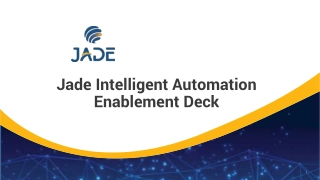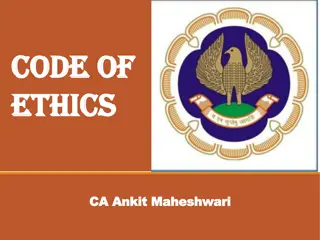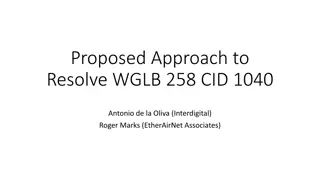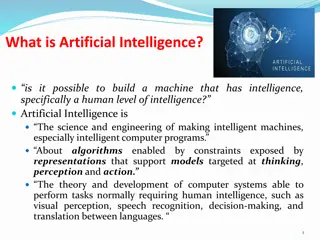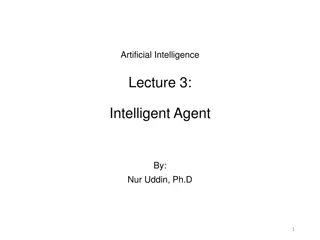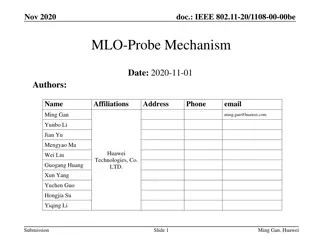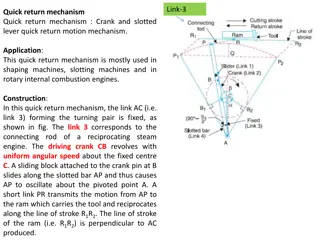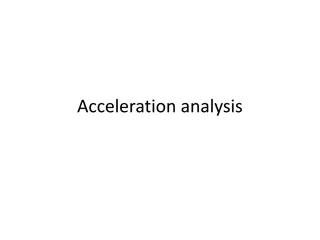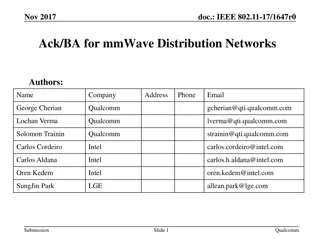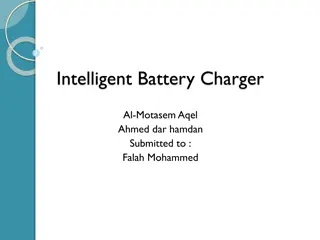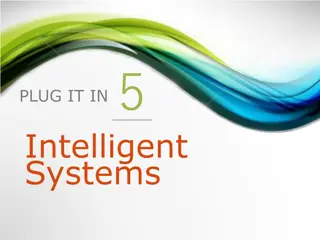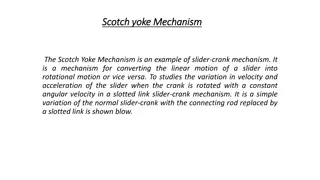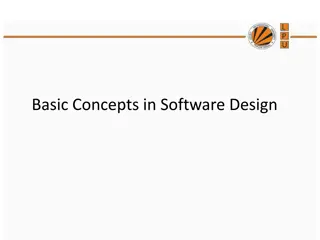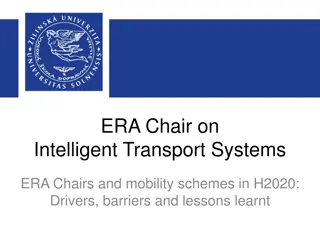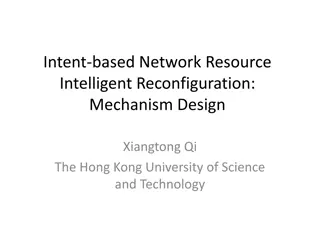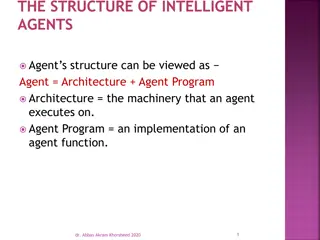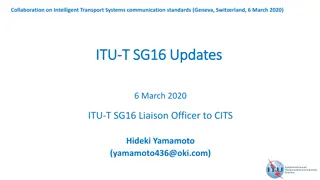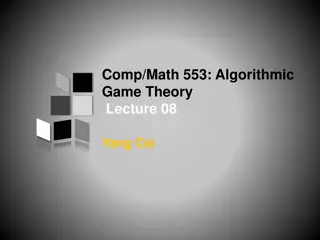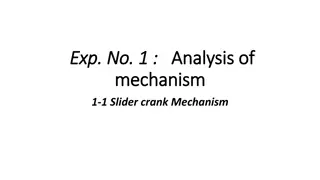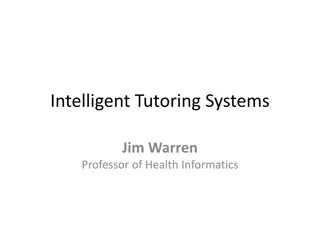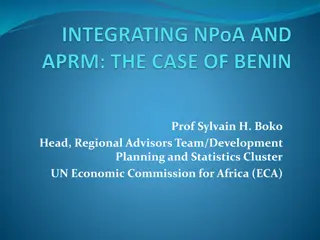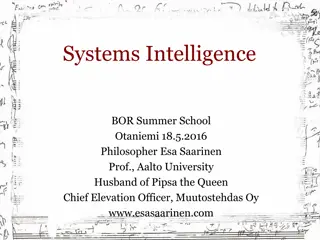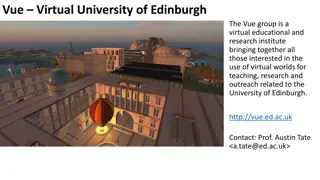Jade Intelligent Automation Enablement Deck
Explore the realm of Intelligent Automation through Robotic Process Automation (RPA) and Artificial Intelligence, enabling businesses to streamline processes, enhance efficiency, and drive digital transformation. Learn about RPA's role in mimicking human behavior, the broader perspective of RPA, com
1 views • 27 slides
Overview of Compliance, Quality Assurance, Ethics, and Disciplinary Mechanism in ICAI
This content discusses various aspects of compliance in the Chartered Accountants sector, including the Quality Assurance Mechanism, Code of Ethics, Disciplinary Mechanism, and details on who can file complaints. It also highlights the amendments in the Chartered Accountants, Cost and Works Accounta
5 views • 37 slides
Understanding the Horizon Europe Mutual Insurance Mechanism (MIM)
The Horizon Europe Mutual Insurance Mechanism (MIM) is designed to protect the financial interests of the EU budget by simplifying administrative processes and providing coverage for grants. It started with the FP7 projects and continues through Horizon Europe projects. Any grant previously covered
2 views • 14 slides
Overview of Ethics, Quality Assurance, and Disciplinary Mechanism in ICAI
This information covers the Code of Ethics, Quality Assurance Mechanism, and Disciplinary Mechanism in the Institute of Chartered Accountants of India (ICAI). It includes details on the ethical standards, peer review boards, disciplinary procedures, and who can file complaints. Additionally, it high
1 views • 37 slides
Proposed Approach for MAC Address Assignment in IEEE 802.11
IEEE 802.1CQ is working on a mechanism to assign local MAC address blocks to end nodes specifically related to IEEE 802.11 standards. The current draft lacks a pre-association mechanism for IEEE 802.11 stations to obtain a local MAC address before association. The proposed remedy suggests specifying
6 views • 7 slides
Grievance Redress Mechanism: Enhancing Project Efficiency
Understanding the Grievance Redress Mechanism (GRM) is crucial for effective project management. This mechanism aims to address complaints and concerns related to project implementation, ensuring transparency and stakeholder engagement. By sensitizing facility GRM focal persons and following structu
4 views • 26 slides
Understanding Artificial Intelligence: Building Intelligent Machines
Artificial Intelligence (AI) is the science and engineering behind creating intelligent machines that can think, perceive, and act like humans. It involves machine learning technologies, algorithms, and models that enable computers to perform tasks requiring human intelligence. AI encompasses a mult
0 views • 28 slides
Cutting-Edge Research on Extreme Environments and Intelligent Systems at LIRA Sandpit
Explore the innovative work at LIRA Sandpit focusing on developing intelligent systems for extreme environments like the nuclear industry and space. Collaborate with experts, propose ideas, and stay updated on funding calls and research opportunities in the field. Reach out to potential collaborator
0 views • 10 slides
Inter-Agency SEA Community Based Complaints Mechanism in Nigeria
The Inter-Agency SEA Community Based Complaints Mechanism in Nigeria facilitates safe and confidential reporting of complaints, particularly related to sexual exploitation and abuse (SEA), by beneficiaries. Through inter-agency coordination, this mechanism ensures effective collaboration, messaging,
1 views • 18 slides
Understanding the Hell-Volhard-Zelinsky Reaction Mechanism
The Hell-Volhard-Zelinsky (HVZ) reaction is a unique halogenation method for carboxylic acids at the alpha carbon, involving phosphorus tribromide and bromine. This mechanism, named after its chemists, requires severe conditions and can lead to specific products or limitations such as beta unsaturat
0 views • 8 slides
Understanding Intelligent Agents in Artificial Intelligence
Intelligent agents in artificial intelligence act rationally to achieve the best outcomes in various environments. They operate autonomously, perceive their surroundings, adapt to changes, and pursue goals efficiently. Developing intelligent agents involves examining agents, environments, and their
1 views • 22 slides
Software Engineering Design Principles and Concepts
The chapter discusses the essential principles and concepts in software design, highlighting the four key design models - data design, architectural design, interface design, and component-level design. It emphasizes the importance of traceability to the analysis model, minimizing the gap between so
0 views • 36 slides
IEEE 802.11-20/1108-00-00be MLO Probe Mechanism in AP MLD
This document discusses the design and implementation of a mechanism for a non-AP STA to send a probe request frame to an AP within an AP MLD, allowing the STA to request a probe response containing information on all APs affiliated with the same MLD as the target AP. It proposes the use of new elem
1 views • 12 slides
Understanding Quick Return Mechanism in Machinery
Exploring the application, construction, and velocity analysis of the crank and slotted lever quick return motion mechanism commonly used in shaping machines, slotting machines, and rotary internal combustion engines. The mechanism involves fixed link AC, driving crank CB, sliding block, and short l
8 views • 14 slides
Acceleration Analysis of Slider Crank Mechanism
In this analysis, we calculate the acceleration of the slider at point B, acceleration of point E, and the angular acceleration of the link AB in a slider crank mechanism. The steps involve drawing configuration, velocity, and acceleration diagrams with suitable scales to determine the necessary par
0 views • 12 slides
Warsaw International Mechanism for Loss and Damage: Addressing Climate Change Impacts
The Warsaw International Mechanism for Loss and Damage focuses on addressing climate change impacts, including extreme events and slow-onset events, in vulnerable developing countries. Through its Executive Committee, the mechanism aims to enhance dialogue, understanding, and action to support those
2 views • 11 slides
Advancements in Chemical Mechanisms for Aerosol Effects in WRF/Chem Model
This study focuses on the development of a new chemical mechanism in the Weather Research and Forecasting with Chemistry (WRF/Chem) model to address the underestimation of carbonaceous aerosols. The RACM/MADE/SOA-VBS mechanism incorporates advancements in gas-phase chemistry and particle parameteriz
0 views • 12 slides
Acknowledgment Mechanism for mmWave Distribution Networks
This document discusses the proposal for an Acknowledgment (Ack) and Block Acknowledgment (BA) mechanism for Time Division Duplex (TDD) Channel Access in mmWave Distribution Networks. The requirements for sending Ack/BA in different slot structures to accommodate various traffic profiles are outline
1 views • 12 slides
Understanding Game Theory: Applications and Concepts
Game theory delves into systems of interacting agents where outcomes depend on each agent's actions. Explored in various fields, it helps in agent design and mechanism design for optimal strategies and rule-setting. Topics covered include Nash equilibrium, coordination games, anti-coordination games
0 views • 39 slides
Intelligent Battery Charger Circuit Design Overview
This presentation outlines the design requirements, challenges faced, and solutions implemented in the development of an intelligent battery charger. The initial design utilized separate circuits for different battery types, leading to complexity and limited control. The final design incorporated a
0 views • 26 slides
Contemplating the Divine: Teleological Arguments for Intelligent Design
When gazing at the heavens, the eloquent words of Cicero and the insights of Sir Isaac Newton and William Paley prompt contemplation on the existence of a divine or intelligent force shaping the universe. The discussion delves into teleological arguments, highlighting the order and design observed i
0 views • 9 slides
Potential Intelligent Transportation System Use Cases for Broadcast Services Study Group
This presentation highlights potential Intelligent Transportation System use cases for consideration by the Broadcast Services Study Group. The use cases were derived from the Architecture Reference for Cooperative and Intelligent Transportation (ARC-IT). While not exhaustive, the presentation provi
1 views • 19 slides
Exploring Intelligent Systems: AI, Expert Systems, and More
Delve into the realm of intelligent systems with topics ranging from artificial intelligence and expert systems to neural networks, fuzzy logic, genetic algorithms, and intelligent agents. Discover the value, limitations, and applications of these technologies through real-world examples and use cas
0 views • 35 slides
Understanding The Scotch Yoke Mechanism: Experiment and Analysis
The Scotch Yoke Mechanism is a slider-crank mechanism that converts linear motion into rotational motion or vice versa. This experiment involves studying the velocity, acceleration, and displacement of a slider as the crank is rotated with constant angular velocity in a slotted link slider-crank mec
0 views • 5 slides
Comprehensive Guide to System Design Components and Techniques
System design involves the detailed planning and identification of components in an information system, aiming to provide users with a general understanding of the new system. This process includes techniques like flowcharts, prototyping, and component design, covering aspects such as output design,
0 views • 24 slides
Understanding Basic Concepts in Software Design
Software design involves transforming customer requirements into a form suitable for implementation, with activities categorized into preliminary and detailed design stages. High-level design focuses on module identification and control relationships, while detailed design entails defining data stru
1 views • 24 slides
Advancing Intelligent Transport Systems Through ERA Chair Program
The ERA Chair program focusing on Intelligent Transport Systems (ITS) has significantly impacted research and innovation at the University of Zilina. Driven by key personnel like Dr. Karl Ernst Ambrosch, Dr. Dietrich Leihs, and Prof. Tatiana Kovacikov, the initiative has led to enhanced internationa
0 views • 19 slides
Intelligent Mechanism Design for Intent-Based Network Resource Reconfiguration
An exploration of intent-based network resource reconfiguration through intelligent mechanism design, focusing on concepts such as intent setting, abstract views of intent networks, mechanism design, network traffic control examples, system optimization, and underlying optimization strategies. Vario
0 views • 11 slides
Overview of Intelligent Agents: Structures and Types
The structure of intelligent agents consists of architecture and agent program. Different types of intelligent agents include simple reflex agents, model-based reflex agents, goal-based agents, and utility-based agents. Each type operates based on specific characteristics and methods to make decisio
0 views • 19 slides
Recent Achievements in Intelligent Transport Systems Communication Standards
Recent achievements in Intelligent Transport Systems communication standards include the establishment of new focus groups, such as FG-AI4AD and FG-VM, to drive standardization activities for AI in autonomous driving and vehicular multimedia. These groups aim to improve safety, performance, and publ
0 views • 10 slides
Mechanism Design and Auction Theory in Game Economics
Today's lecture covers the concepts of mechanism design and single-item auctions in the field of algorithmic game theory. Mechanism design focuses on reverse-engineering existing game systems to achieve desired objectives, while auctions play a crucial role in various scenarios such as online market
0 views • 30 slides
Analysis of Slider-Crank Mechanism and Experimental Data
Slider-crank mechanism analysis involves understanding the transformation of input motion into desired output motion. This mechanism consists of a crank, coupler, slider, and ground link, converting circular motion into linear motion. Experimental procedures involve setting crank angles and recordin
0 views • 6 slides
Intelligent Tutoring Systems: Enhancing Learning through Technology
Explore the world of Intelligent Tutoring Systems (ITS) with Jim Warren, a Professor of Health Informatics. Learn about the dimensions of ITS, examples like AutoTutor and LISP tutor, and implications for the future of learning and MOOCs. Delve into student modeling basics, methods to acquire/update
0 views • 22 slides
The African Peer Review Mechanism (APRM) and Benin's Progression
The African Peer Review Mechanism (APRM) is a governance mechanism voluntarily adopted by African nations to promote democracy, stability, and sustainable development. This article discusses the importance of the APRM, its stages, and Benin's progression within the mechanism, showcasing key indicato
0 views • 17 slides
Understanding Our Political Economy Through Economic Theory and Price Mechanism
Explore the intricate dynamics of political economy through neoclassical economic theory, price mechanism analysis, and the role of land as a factor of production. Delve into concepts like labor demand, capital goods, credit markets, and the limitations of the price mechanism in certain contexts. In
0 views • 30 slides
Critique of Transatlantic Trade & Investment Partnership (TTIP) and ISDS Mechanism
The content discusses the concerns and criticisms surrounding the Transatlantic Trade & Investment Partnership (TTIP) and the Investor-State Dispute Settlement (ISDS) mechanism. It highlights issues such as undemocratic practices, economic myths, impacts on workers' rights, safety regulations, clima
0 views • 44 slides
Systems Intelligence: Enhancing Intelligent Behavior in Complex Systems
Explore the concept of Systems Intelligence, focusing on intelligent behavior within complex systems through interaction and feedback. This approach emphasizes understanding the interdependency of individuals within a larger system, enabling intelligent actions and decision-making. Delve into practi
0 views • 21 slides
Challenges and Goals of Intelligent Experiences in UX Design
Understanding the concept of intelligent experiences as highlighted by Geoff Hulten, this content delves into the goals, examples, and complexities associated with implementing intelligent interactions in various scenarios. It explores how intelligent systems can achieve objectives, change user beha
0 views • 16 slides
Discussion on Improving Transmission Efficiency in IEEE 802.11 TWT Mechanism
This document proposes enhancements to the IEEE 802.11 TWT mechanism to address issues related to random access Resource Units (RU) utilization. By defining a mechanism to optimize RU allocation for TWT scheduled STAs, the proposal aims to improve transmission efficiency and power saving, particular
0 views • 11 slides
Virtual Innovation Projects at University of Edinburgh
The Virtual University of Edinburgh hosts innovative projects like I-Room for intelligent interactions, Project AIBO for human-robot cooperation, and I-X for intelligent planning and design. These projects showcase cutting-edge technology and research efforts in virtual environments. The O-Plan arch
0 views • 7 slides
